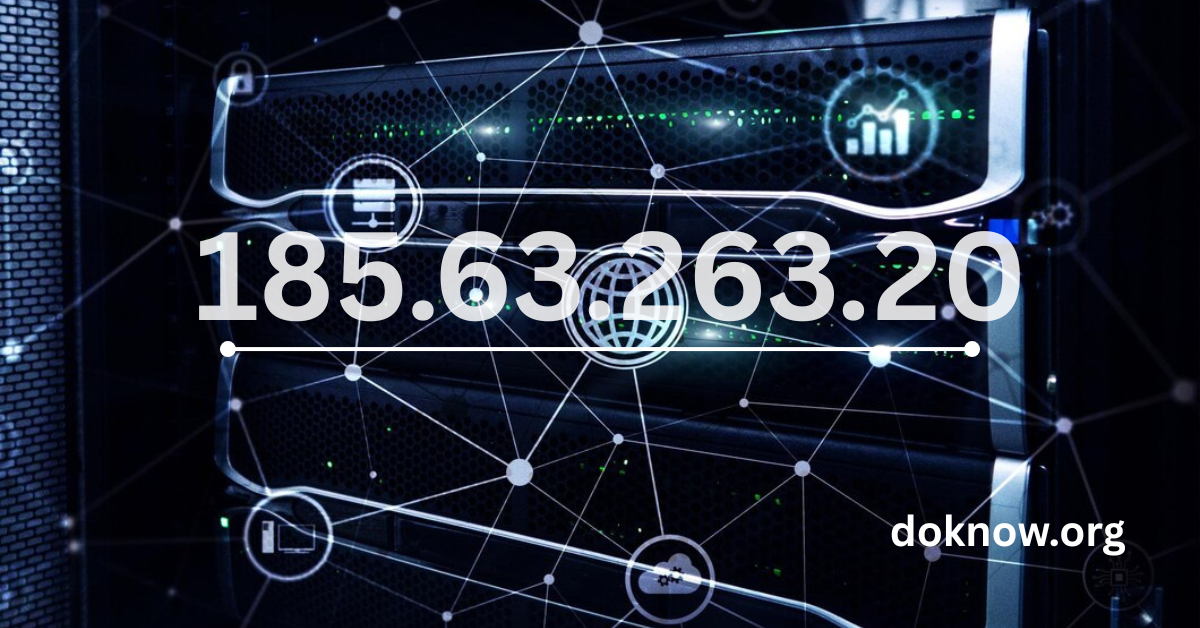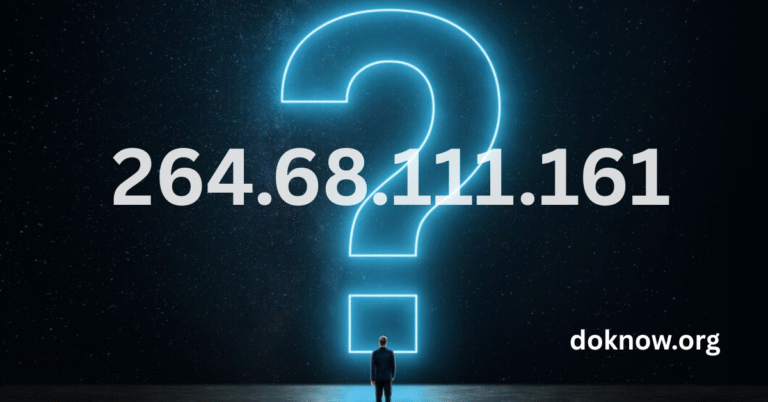185.63.263.20 Explained: A Deep Dive into IP Address Relevance
In today’s increasingly connected digital world, IP addresses serve as the backbone of online communication. Among the billions of IP addresses in existence, 185.63.263.20 stands out as one that sparks curiosity and questions. Is it associated with a server, a proxy, or a suspicious activity? Understanding this unique address provides insight into how data travels and is secured. In this article, we dissect the meaning, relevance, and use cases surrounding 185.63.263.20, empowering readers—from tech enthusiasts to everyday users—with knowledge that deepens digital awareness. Let’s explore what makes this number more than just a string of digits.
What Is an IP Address and Why It Matters
An IP (Internet Protocol) address acts like a digital home address for devices online.
- Helps devices communicate
- Identifies server locations
- Crucial for network security and tracking
There are two types of IPs: IPv4 and IPv6. 185.63.263.20 is an IPv4 format, used globally.
Exploring 185.63.263.20
This specific IP may be:
- Assigned to a hosting provider
- Used by proxies or VPNs
- Flagged in blacklist databases (depending on activity)
Online tools like WHOIS or IP lookup help uncover the origin or ownership of this address.
Potential Associations and Risks
While 185.63.263.20 might be harmless, it has been found in reports that suggest:
- Possible brute-force activity
- Server communication anomalies
- Inclusion in some threat intelligence datasets
Always verify with cybersecurity databases for real-time context.
How Businesses Use IP Monitoring
Companies use IPs to:
- Prevent unauthorized access
- Block known suspicious addresses
- Ensure data compliance with regional regulations
IP monitoring helps maintain secure digital infrastructure.
How Users Can Investigate 185.63.263.20
Steps to explore any IP’s origin:
- Use IP lookup tools (like IPinfo or AbuseIPDB)
- Cross-reference with threat detection lists
- Verify server or proxy usage
Online transparency starts with proactive research.
What to Do If You Encounter This IP
If 185.63.263.20 appears in:
- Server logs
- Firewall alerts
- Suspicious emails
Consider the following:
- Check for abnormal traffic
- Enable IP blocking rules
- Report to cybersecurity platforms
Related Keywords and Synonyms
To enhance semantic SEO:
- IPv4 address
- IP tracking
- Cybersecurity IPs
- Proxy detection
- Network identity
These related terms increase the article’s search engine reach without overstuffing.
SEO Best Practices for IP-Related Content
When publishing content about IPs:
- Use proper formatting
- Ensure contextual keyword placement
- Avoid technical jargon overload
- Make paragraphs scannable with bullet points
Conclusion
The IP address 185.63.263.20 may look random, but it represents a much larger story about identity, access, and digital infrastructure. Whether flagged by threat databases or found innocuously in server logs, such addresses matter when understanding digital footprints. Regular IP monitoring, cybersecurity vigilance, and informed analysis help users and businesses stay protected. Awareness is power—and even one IP can offer a roadmap to safer browsing and stronger security protocols. Take a closer look at the digital clues that surround us. Stay aware, stay informed, and let data guide your decision-making.
FAQs Section
Q. What is the purpose of 185.63.263.20?
This IP address may be tied to a hosting service, VPN, or flagged for suspicious activity. It’s commonly found in server logs, monitoring software, or cybersecurity databases.
Q. Is 185.63.263.20 dangerous?
Not necessarily. Context matters. It might be flagged by threat intelligence platforms, but this doesn’t confirm malicious use without supporting evidence.
Q. How can I check the owner of 185.63.263.20?
Use tools like WHOIS lookup, IPinfo, or AbuseIPDB. These resources provide origin, location, and potential abuse records.
Q. Can businesses block IPs like 185.63.263.20?
Yes, many firewalls and cybersecurity platforms allow manual or automatic IP blocking to prevent unauthorized access or potential threats.
Q. Why would this IP appear in my system logs?
It could be from a legitimate server request, third-party software call, or malicious attempt. Always investigate source and activity.
Q. How does this IP relate to digital identity?
IP addresses link devices to regions and activities. They’re crucial in tracking, targeting, and protecting online behavior and infrastructure.







